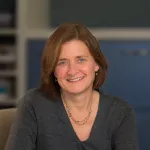 Photo by Charlotte Fiorito
Photo by Charlotte Fiorito
Transparency is More than Disclosure
Note from Beth Kanter: One of the themes I’ve been exploring over the last few years related to networks is transparency. Transparency is more than disclosure. It includes participation in acquiring, distributing, and creating knowledge or what my colleagues at the OE Program at Packard have dubbed “Public Learning.” Linda Wood, Senior Director of Leadership and Grantmaking, Evelyn and Walter Haas, Jr. Fund, calls it “Learning Out Loud,” and has shared this reflection on one of the foundation’s programs.
“When you don’t know what you don’t know, you’re going to fall over yourself and make mistakes, and that’s what we were doing.” That’s the candid assessment of Kate Kendell, Executive Director of the National Center for Lesbian Rights, in a new video from the Evelyn and Walter Haas, Jr. Fund.
We at the Haas, Jr. Fund asked Kate to share her experiences with our Flexible Leadership Award in this video because we knew it could benefit others to hear her story. To hear how starting in 2004, this well-respected but relatively small organization suddenly found itself at the forefront of the movement for marriage equality. How Kate and another leader at NCLR, Shannon Minter—two of the best legal and political minds around—struggled to address all the challenges and opportunities presented by the organization’s explosive growth. How through taking a deep breath and admitting what they didn’t know—and being willing to learn—NCLR has emerged stronger than ever.
The Fund established the Flexible Leadership Award program in 2005 to help our social change grantees cope with the twin challenges of organizational growth and movement leadership. Since that time, the program has served more than 50 nonprofits, helping them to strengthen everything from fundraising capacity to communications to staffing and board development.
Let’s be blunt here: investing in leadership can be a tough sell. For one thing, when you’re scrambling to address pressing needs every day, it can be hard to see how taking the time to broaden your leadership base, assess strengths and weaknesses, and develop a plan for change is anything but a luxury. As Kate says in the video, “The last thing I wanted to deal with was leadership. We were just doing the work.”
There’s another reason organizations may be hesitant to invest in leadership: it means having to actually admit you are facing challenges. Too often we mistake a steely resolve for leadership. Leaders are supposed to just get things done, whatever the personal or organizational cost. And certainly, in today’s tough funding climate, it can seem foolish to admit to anyone—least of all funders—what you don’t know or what you do need help with.
NCLR took that risk. And in so doing, Kate and Shannon strengthened the organization by cultivating leadership in existing staff and bringing in new staff. They learned how to share responsibility and developed processes for decision-making. They developed a senior leadership team with increased capacity for fundraising and communications. Now, Kate says, she knows she doesn’t have to make tough decisions on her own, and she doesn’t even try. Says Shannon in the video, “we are exponentially more productive than before we learned these lessons.”
As foundations, we wield a lot of power. We can use that power to intimidate our grantees into thinking they need to have all the right answers – or we can encourage our grantees to tell us when they are struggling.
I hope our new video – and the detailed information accompanying it – will help other foundations take steps towards greater transparency and learning out loud.
Because in the end, by welcoming the kind of candor that Kate and Shannon exhibit, we can all learn right along with them.
Read this post on Beth's blog.
